Cop28: Women turn to community to weather climate crisis and inflation in Bangladesh
Trade in locally produced seeds is proving a lifeline for families under threat from cost of living rises and devastating weather, says anti-hunger charity ActionAid
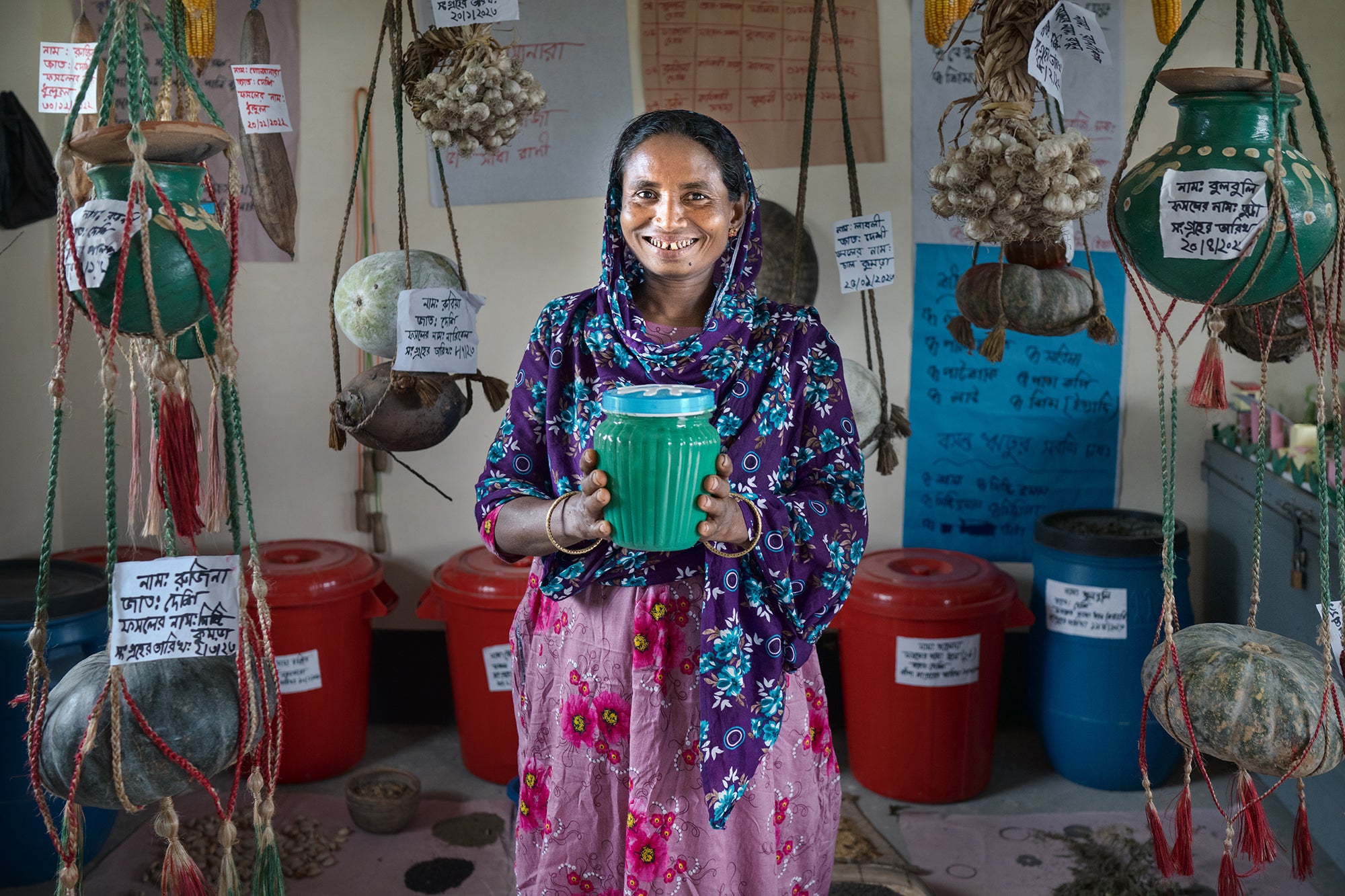
Your support helps us to tell the story
From reproductive rights to climate change to Big Tech, The Independent is on the ground when the story is developing. Whether it's investigating the financials of Elon Musk's pro-Trump PAC or producing our latest documentary, 'The A Word', which shines a light on the American women fighting for reproductive rights, we know how important it is to parse out the facts from the messaging.
At such a critical moment in US history, we need reporters on the ground. Your donation allows us to keep sending journalists to speak to both sides of the story.
The Independent is trusted by Americans across the entire political spectrum. And unlike many other quality news outlets, we choose not to lock Americans out of our reporting and analysis with paywalls. We believe quality journalism should be available to everyone, paid for by those who can afford it.
Your support makes all the difference.Bangladesh is among the 10 most climate-vulnerable countries in the world, and unless the global community steps up at Cop28 to fund loss and damage for countries like it, it will continue to suffer as the weather worsens.
With over 185 adverse weather events in the past 20 years, people in Bangladesh are facing substantial loss and damage from the climate crisis.
The cost of living crisis is disproportionately affecting its marginalised communities – including farmers in rural regions who are heavily impacted by the climate crisis.
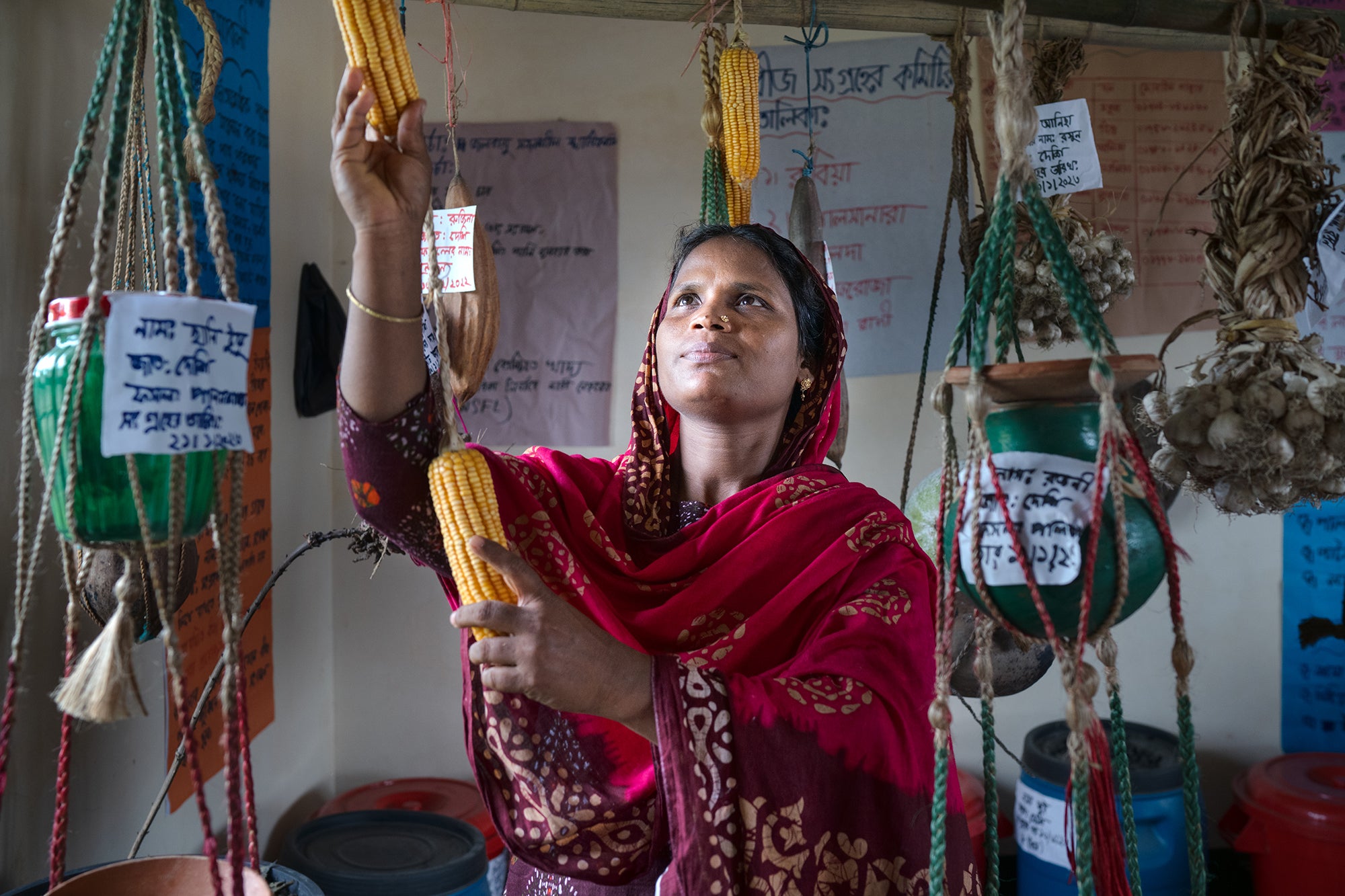
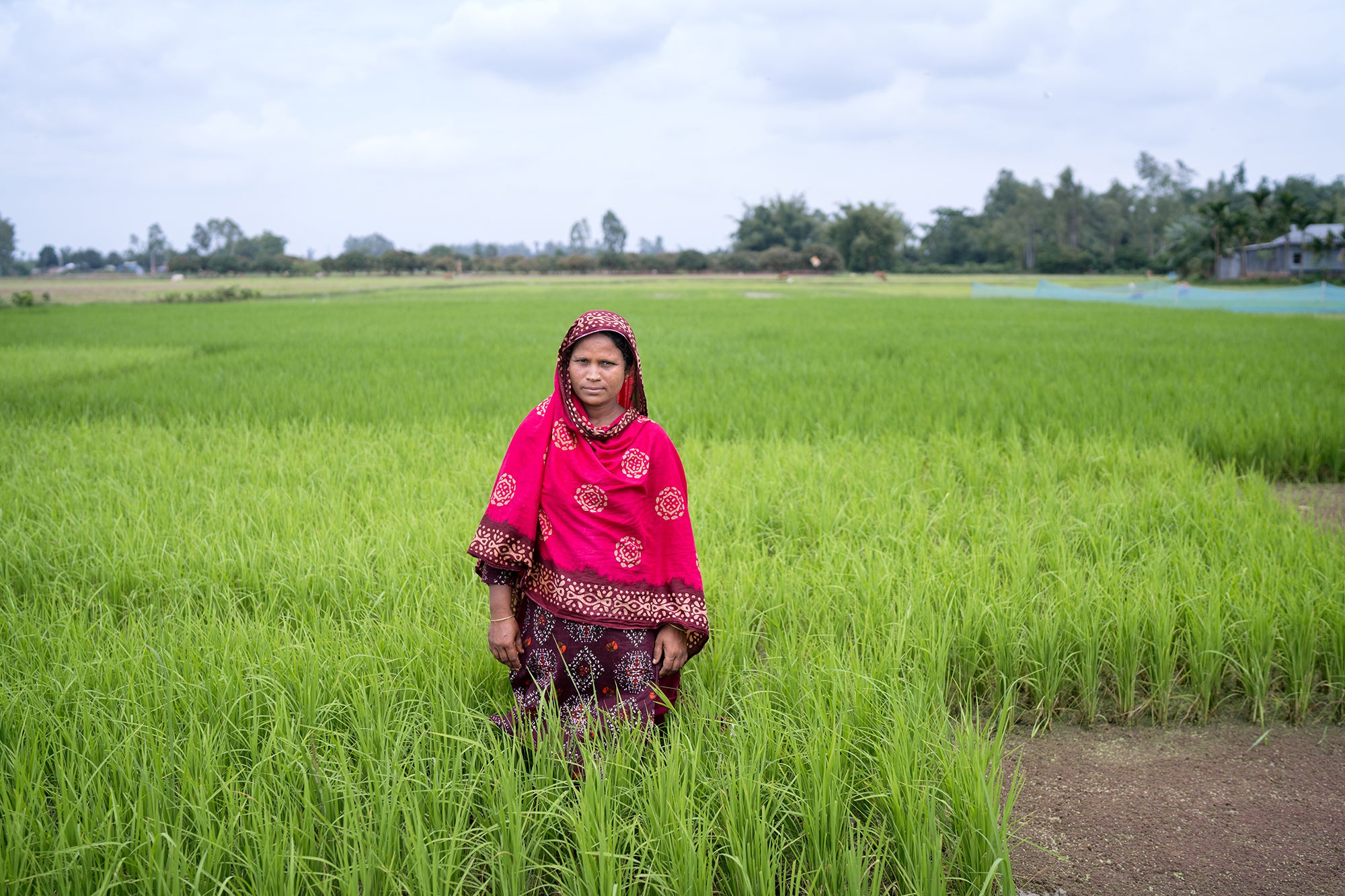
A community seed bank run by a women farmers’ group in Ghoraghat, Bangladesh, is helping shield its members from the rising cost of living.
The seed bank runs on a loan-and-return basis, which means that, rather than buy non-local, hybrid seeds from the market, the women have access to local heirloom seeds which are far more climate resilient and also produce tastier vegetables.
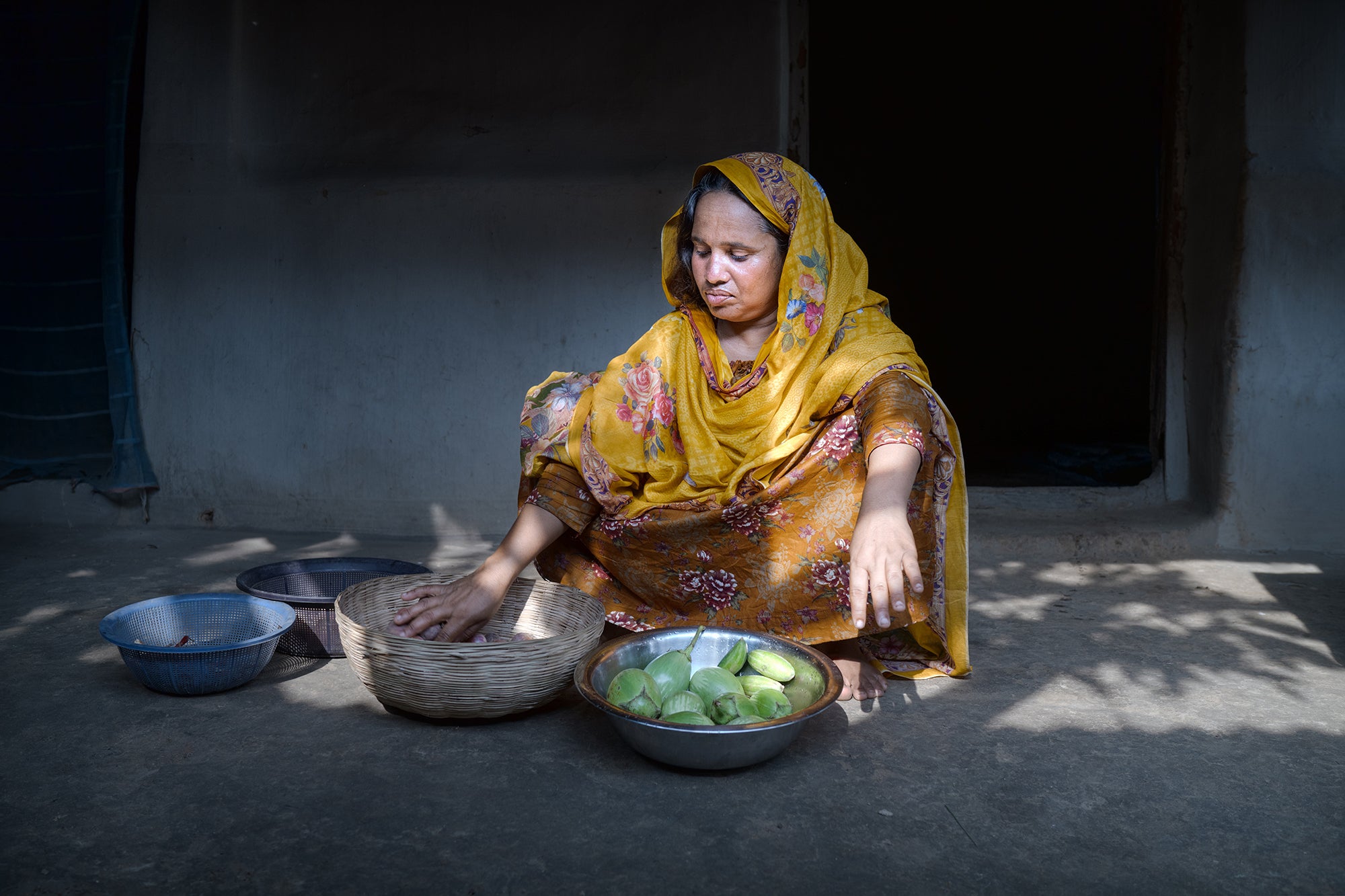

It’s helping women like Rozina – the 33-year-old chair of the women farmers’ group – grow enough food to feed their families, insulating them from hugely inflated prices at the market.
ActionAid has supported both the seed bank and women-led market and is running a campaign called Seeds of Change which supports women farmers to shift power and grow a better future.
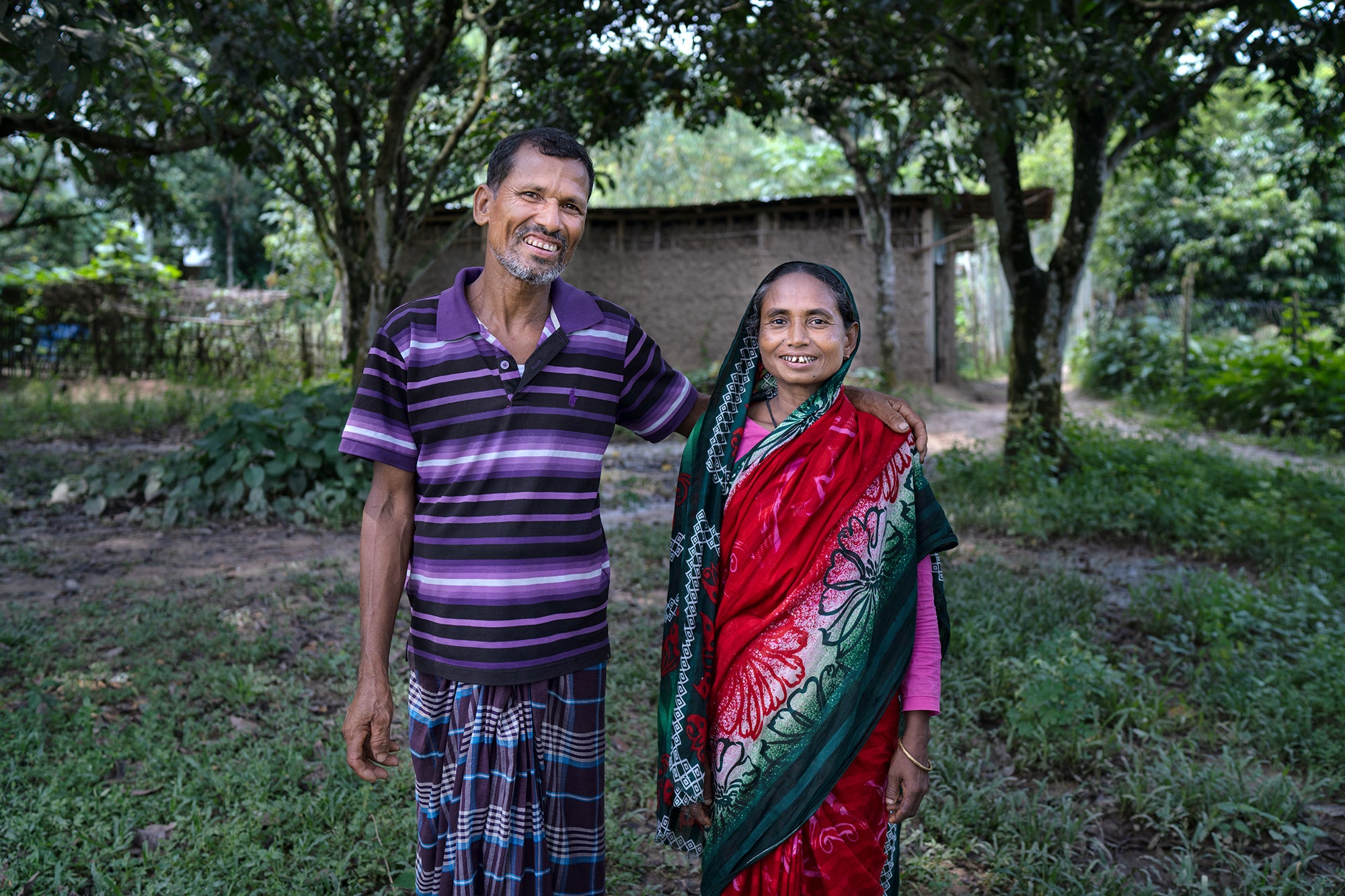
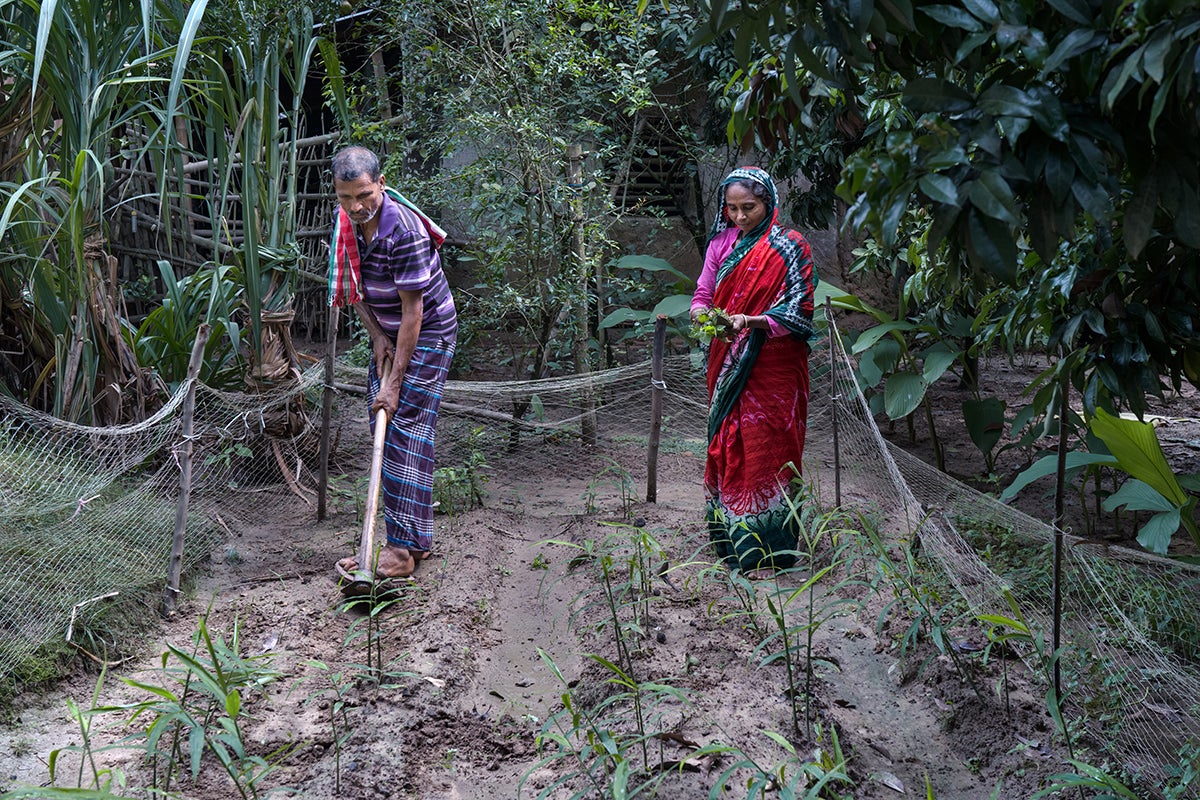
ActionAid is collecting for its Christmas Appeal here
Join our commenting forum
Join thought-provoking conversations, follow other Independent readers and see their replies
Comments